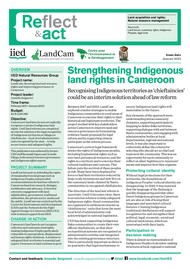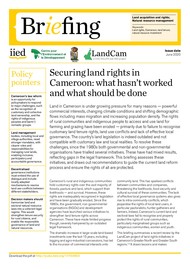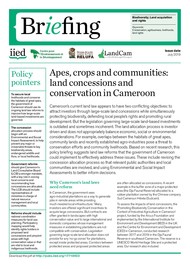Using dialogue to address land-related conflicts

In Cameroon, the rise in large-scale investments in sectors such as agribusiness, mining and forestry has caused widespread transfers of land rights from local communities to commercial actors. But these transfers often overlook community rights to consultation, information and consent. Investments cause frequent displacement and/or loss of access to crucial areas and resources. They are often sources of conflict, especially when they ignore local priorities or fail to generate substantial benefits.
In this Reflect & Act, we reflect on key learnings from work done by CED in 2018–2019, as part of the LandCam project, to support a multistakeholder dialogue in the Dja Biosphere Reserve (a protected area in Southern Cameroon). Indigenous Peoples and local communities were in a land-related conflict with a large-scale agribusiness investor, and the Dja dialogue brought together the investor, affected communities, conservation actors, local government representatives and other civil society organisations. The dialogue improved understanding of differences in perception between the investors and communities, and enabled the latter to better formulate their demands.
Cite this publication
Available at https://www.iied.org/21356iied






